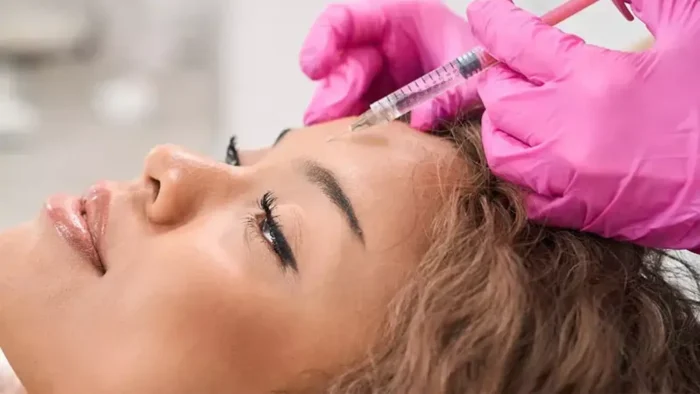
The U.S. Food and Drug Administration (FDA) is a cornerstone in ensuring the safety, efficacy, and quality of medical products. With its Center for Drug Evaluation and Research (CDER) approving 55 novel drugs in recent years, the FDA sets the standard for public health protection. For both aesthetic and therapeutic injectables, FDA approval serves as a critical marker of credibility and trust among medical professionals and patients alike.
This is especially true when evaluating newer botulinum toxin products, such as Innotox. Developed in South Korea, Innotox has garnered global attention due to its innovative, ready-to-use formulation. However, its FDA approval journey remains an ongoing area of interest for both practitioners and patients, as it continues to make strides in aesthetic medicine worldwide.
In this article, we will delve into the FDA approval status of Innotox, explore its development background, and discuss what this approval process means for users and medical professionals navigating its use.
Key Takeaways
- Innotox has not yet received FDA approval for use in the United States, but it enjoys regulatory acceptance in markets like South Korea, Latin America, the Middle East, and parts of Europe.
- Innotox’s ready-to-use liquid formulation offers significant advantages in convenience and consistency, making it especially appealing for aesthetic practitioners. However, its use remains restricted to regions where it has received local regulatory clearance.
- FDA approval for biologics like Innotox requires rigorous testing through preclinical studies and phases I–III clinical trials, which Innotox has not yet completed in the U.S.
- Evolus and Medytox’s partnership to launch Innotox in the U.S. as DTAB was delayed due to intellectual property disputes. Despite resolving legal challenges in 2021, FDA submission for DTAB has not occurred.
- Using Innotox in non-approved regions like the U.S. can present legal and ethical risks, including potential violations of pharmaceutical distribution laws. Practitioners must be cautious about sourcing and using Innotox outside regulated markets.
- The best practice for U.S.-based clinicians is to use FDA-approved botulinum toxin products like Botox, Dysport, Jeuveau, and Xeomin, as these have undergone extensive clinical evaluation to meet U.S. healthcare standards.
- Innotox remains an innovative option with its pre-mixed liquid format and high purity, but until it satisfies the FDA’s clinical benchmarks, its use in U.S. clinical settings remains unauthorized.
About: Doctor Medica is your trusted supplier of top-quality dermal fillers, viscosupplements, and more for your medical practice. We offer genuine products from leading brands at the lowest prices in the market. If you’re looking to order Innotox online for your practice, contact Doctor Medica today.
Innotox Global Regulatory Status and Use

While Innotox has not yet secured FDA approval, it enjoys broad regulatory acceptance across several international markets. In South Korea, where Medytox, the Innotox manufacturer, is headquartered, the product is widely available for both aesthetic and therapeutic applications. South Korean clinics commonly use Innotox for wrinkle reduction, muscle relaxation, and specific medical indications, all of which are subject to strict local regulations to ensure patient safety.
Beyond Korea, Innotox holds approvals in Latin America (LAC), the Middle East, and several European countries. Many providers in these regions appreciate the convenience and consistency that Innotox offers, especially when considering techniques like how to inject Innotox in sensitive facial areas, ensuring smoother results with minimal error. Its ready-to-use formulation has made it a popular choice among professionals who prioritize ease of use in busy clinics.
However, Innotox is not yet approved for use in the United States, Canada, or Australia, where national-level authorization is required before any botulinum toxin product can be legally sold or used. As a result, Innotox cannot be marketed, prescribed, or administered outside of clinical trials or research settings in these territories.
This lack of regulatory approval in major markets means that Innotox’s presence is currently limited to specific regions where local authorities have granted regulatory clearance.
The FDA Approval Process and Innotox’s Path
The U.S. Food and Drug Administration (FDA) enforces one of the most rigorous approval systems for biologics in the world. This multi-phase process ensures that all biologic drugs, including botulinum toxin products, meet strict standards for safety, efficacy, and quality before they are made available for widespread use.
Preclinical Studies
This initial phase involves laboratory research and animal testing to determine the product’s pharmacology and potential toxicity. Developers must demonstrate that their product is biologically active and shows a favorable safety profile before human trials can begin.
Clinical Trials – Phases I to III
If preclinical results are promising, human trials begin:
- Phase I: Tests the product’s safety and dosage on a small group of healthy volunteers.
- Phase II: Assesses the drug’s effectiveness and monitors side effects in a larger patient group.
- Phase III: Expands this to a broader population and compares the new product to existing treatments to confirm clinical benefits and monitor long-term adverse reactions.
As of now, Innotox has not completed this process. There is no official record of a submitted or approved BLA (Biologics License Application) for Innotox with the FDA. While the product has a strong track record abroad, particularly in Asia, its absence from the U.S. market stems from not fulfilling these stringent regulatory requirements.
In contrast, competitors like Botox (Allergan), Xeomin (Merz), Jeuveau (Evolus), and Dysport (Ipsen) have all undergone this extensive approval pathway. They are FDA-approved for various cosmetic and therapeutic indications, including glabellar lines, cervical dystonia, chronic migraines, and hyperhidrosis. These products have undergone rigorous U.S.-based trials, with clear documentation reviewed by the FDA before commercial release.
For now, Innotox remains an exciting alternative due to its pre-mixed liquid format and high purity, but until it satisfies the FDA’s clinical benchmarks, its use in the U.S. remains unauthorized. It operates in markets where local regulatory authorities have granted approval but cannot be legally used in American clinical settings.
Evolus and DTAB: The Innotox U.S. Partnership Attempt

Medytox previously entered into a partnership with Evolus to introduce a U.S. version of Innotox, which was rebranded as DTAB. However, legal challenges and intellectual property disputes caused significant delays in the process. In 2017, a lawsuit was filed by Medytox (alongside Allergan), accusing Daewoong and Evolus of misuse of trade secrets. This lawsuit contributed to a prolonged dispute that likely impacted FDA progress.
In 2021, a settlement between AbbVie, Medytox, and Evolus resolved intellectual property (IP) issues, clearing the path for Jeuveau and future partnerships. However, despite this resolution, the FDA submission for DTAB still has not occurred, leaving Innotox’s future in the U.S. uncertain. For now, Medytox’s development efforts have pivoted away from the U.S. market.
Legal Use Considerations for Innotox in Non-Approved Regions
Using Innotox in regions where it has not received official regulatory approval, such as the United States, Canada, or Australia, presents unique legal and ethical challenges. Clinicians must navigate a complex regulatory landscape that prioritizes patient safety and public health standards.
- Off-Label and Import Risks: In countries where Innotox has not received regulatory clearance, importing and using the product could violate pharmaceutical distribution laws. In the U.S., for example, the FDA prohibits the sale or use of non-approved biologics without proper authorization. Practitioners should not assume they can legally source Innotox through third-party or grey-market channels.
- Informed Consent: In regions where limited off-label use or experimental applications are permitted, comprehensive informed consent becomes crucial. Patients must be made aware that Innotox has not received FDA approval and is not cleared for commercial use in cosmetic or medical applications. It is important to explain any potential safety risks, legal considerations, and the absence of U.S.-based outcome data.
- Liability and Practitioner Responsibility: Medical providers who administer Innotox in non-approved regions assume a high level of legal and professional risk. In addition to ensuring patient safety, there is a duty to comply with regulatory standards. Documentation should include a clear rationale for using Innotox, proof of patient awareness, and any relevant local regulatory exemptions or permissions that apply.
- Best Practice Recommendation: To maintain compliance and ensure patient safety, the best course of action for providers in regulated jurisdictions is to adhere to FDA-approved neurotoxin brands, such as Botox, Dysport, Jeuveau, or Xeomin. These products have undergone extensive clinical evaluation, ensuring they meet U.S. healthcare standards.
Conclusion
As of now, Innotox’s FDA approval remains pending, with no U.S. licensure achieved. While Medytox has succeeded in several international markets, its U.S. launch has faced significant delays due to legal disputes and regulatory challenges. If you’re practicing in non-approved regions, it’s crucial to navigate carefully, ensuring informed consent and strict adherence to relevant laws and regulations.
For U.S. clinicians and patients, sticking with FDA-approved products like Botox and Dysport remains the safest option when considering botulinum toxins.
FAQ
1. Is Innotox FDA-approved?
No. Innotox has not submitted a complete Biologics License Application (BLA) and therefore lacks FDA approval, which prevents its legal use in the United States.
2. What happened with the Evolus partnership?
Medytox partnered with Evolus to market Innotox as DTAB, but IP litigation and delays halted U.S. rollout. A 2021 settlement resolved some issues, but FDA submission has not yet occurred.
3. Can I import Innotox for U.S. patients?
Importing non-FDA-approved toxins for clinical use is illegal. Research use may be permitted under FDA IND or similar local protocols, but commercial use is prohibited.
4. Which botulinum products are FDA-approved?
FDA-approved neurotoxins include Botox, Xeomin, Jeuveau, and Dysport. Innotox, while cleared in several countries, is not part of U.S. medical or cosmetic offerings.
References
Ebied AM, Elmariah H. New drugs approved in 2023. Published July 24, 2024. https://www.gavinpublishers.com/article/view/new-drugs-approved-in-2023
Keown A. AbbVie Settles Botox Rival IP Lawsuit with Evolus. BioSpace. Published February 19, 2021. https://www.biospace.com/abbvie-medytox-settle-intellectual-property-dispute-over-botox-rival
Medytox. https://www.medytox.com/page/innotox_en?site_id=en
Related Articles
Joanna Carr
Crespine Gel Benefits and Drawbacks
Discover the benefits and drawbacks of Crespine Gel—learn how it relieves joint pain, improves mobility, and its potential side effects or limitations...
Joanna Carr
Botox For Anal Fissure Explained
Have an interest in learning about An Explanation Of Using Botox For Anal Fissure? Browse Doctor Medica's extensive archive of blog postings.
Joanna Carr
Restylane or Botox: Optimal Treatment for Facial Rejuvenation
We'll explore how each treatment works, the areas they target most effectively, and each option's potential benefits and drawbacks.


